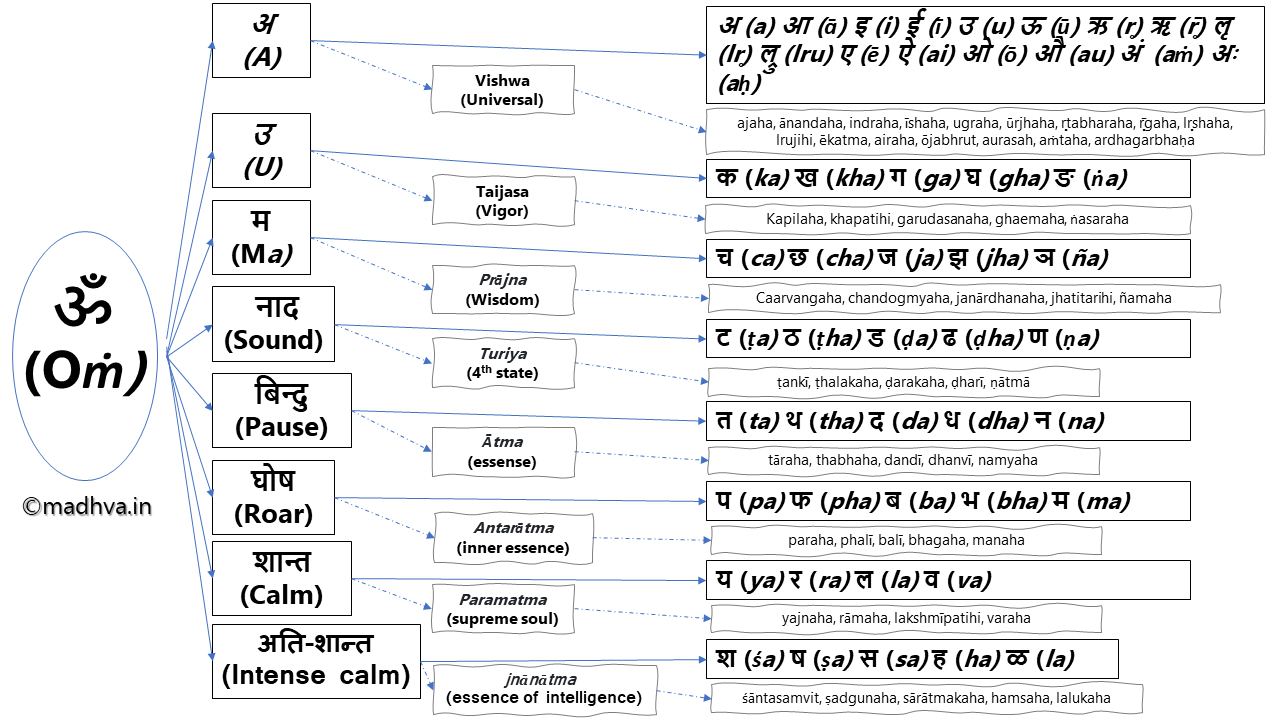Tantra Sāra 1.009
ṇātmā tārasthamō daṇḍī dhanvī namyaḥ paraḥ phalī। balī bhagō manuryajñō rāmō lakṣmīpatirvaraḥ ॥9॥
ṇa - for ṇātmā, ta - for Tāra, da - for Dhabah, da - for Daṇḍī, dha - for Dhanvī, na - for Namyah, pa - for Parah, pha - for Phalī, ba - for Balī, bha - for Bhagah, ma - for Manuh, ya - for Yajnah, ra - for Rāmah, la - for Lakshmipatih, and va - for Varah.
Note:
ṇātmā = joyous, Tāra = remover of bad, Dhabah = lifter of Govardhana, one who helps the needy, Daṇḍī = the cowherd standing with a stick, one who protects, Dhanvī = one with a bow, Namyah = who is eligible to be worshipped by all, Parah = protector, Phalī = one who gives results, Balī = who gives strength, Bhagah = who possesses infinite wealth, Manuh = the knowledgeable, Yajnah = sacrifice, Rāmah = one who shines, Lakshmipatih = husband of the chit-prakrti i.e governess of the insentient, and Varah = the beloved.
A pictorial representation of how everything is derived from the Pranava, 'Om':

